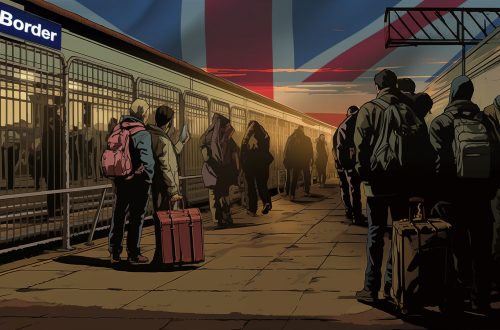This is a guest post by Matt Hill
In an article at The Independent today I argue that the widespread pessimism surrounding a two-state solution for the Israel-Palestine conflict is misplaced. Contrary to common assumptions, West Bank settlements haven’t made the creation of a Palestinian state impossible. There is agreement in the international community and among Palestinian and Israeli pragmatists about the final shape of a deal: on borders, Jerusalem and Palestinian refugees.
Harry’s Place readers will disagree with a number of points in my article. Many of you will argue I have underplayed the extent of popular opposition to a deal among Palestinians, overplayed the pragmatism of the Abbas-led Palestinian Authority, and am altogether too credulous about the claims of Hamas moderates to be open to negotiations. There is a debate to be had on all these points, and others besides.
But I think it may be worthwhile to try and clarify where our disagreement lies. A useful way of categorising attitudes towards the two-state solution is, I suggest, as follows:
1. Pro-Palestinian hardliners: the two-state solution is undesirable because Israel shouldn’t be allowed to exist.
2. Pro-Palestinian moderates: the two-state solution is desirable, but unachievable at present due to Israel’s actions.
3. Pro-Israeli moderates: the two-state solution is desirable, but unachievable at present due to the Palestinians’ actions.
4. Pro-Israeli hardliners: the two-state solution is undesirable, because a Palestinian state shouldn’t be allowed to exist.
This is a simplified way of looking at things, and it might be helpful to see these positions as a spectrum. Many Harry’s Place readers probably fall somewhere between 3 and 4: that is, in an ideal world you may support a two-state solution, but believe that, since the Palestinians will never accept Israel’s right to exist, there’s no option but to continue the occupation.
For my part, I fall somewhere between 2 and 3, while leaning towards 2. That is, I strongly support the right of both Israelis and Palestinians to a state, and blame both sides to some extent for the current impasse. But I am more prone to seeing Israeli actions as the root cause of the continuing conflict, because I believe Israel, as the more powerful party, overwhelmingly sets the context to which Palestinian actions are a response. Israel is much more powerful, and is therefore proportionately more responsible for the situation as it stands.
We can argue about all these issues (and I am always happy to do so, though I’d prefer to do it in a civilised way). But it may be useful to note that, in many ways, both sets of moderates have more in common than they do with hardliners on their ‘own’ side.


